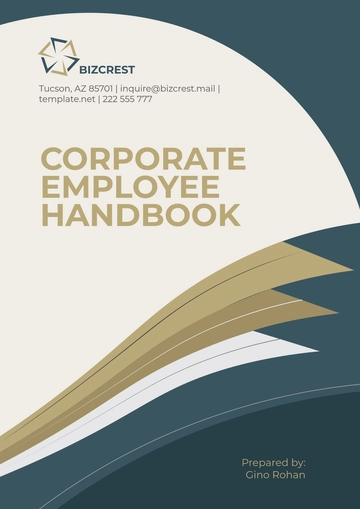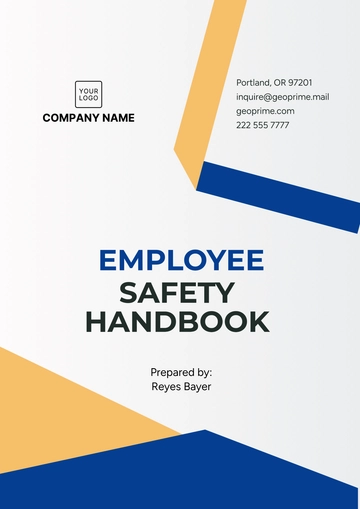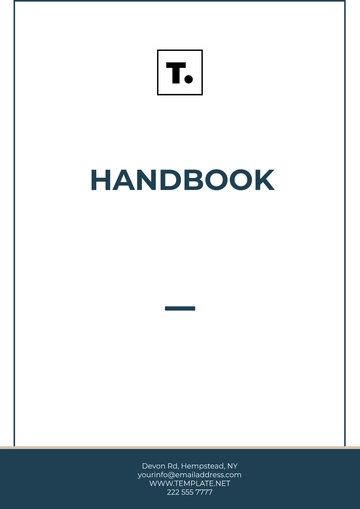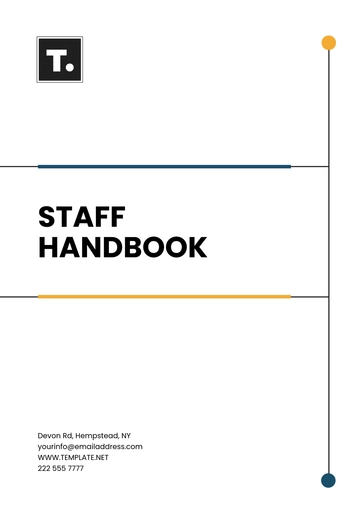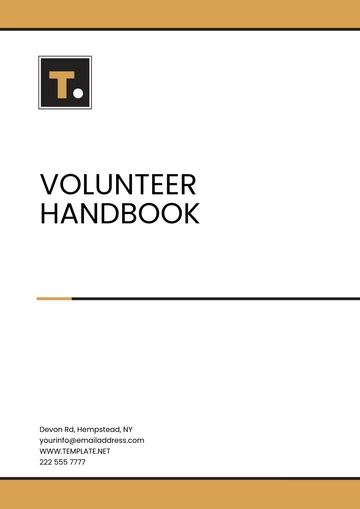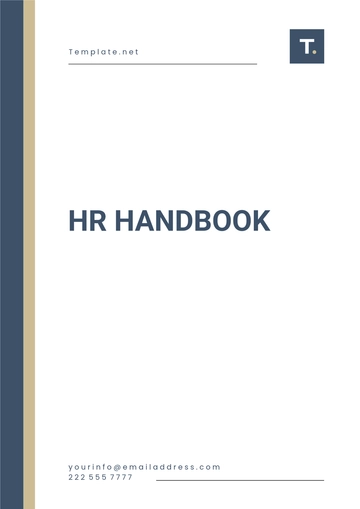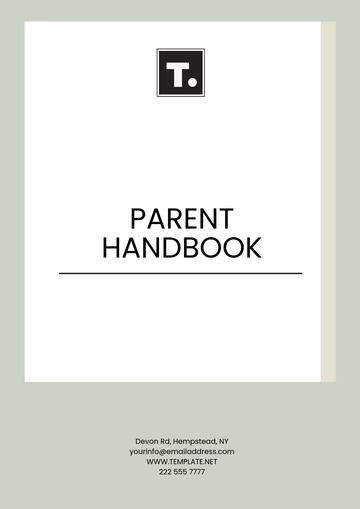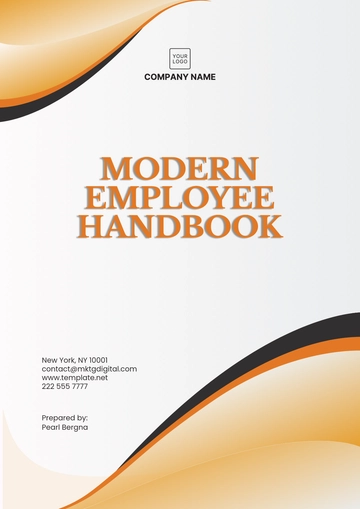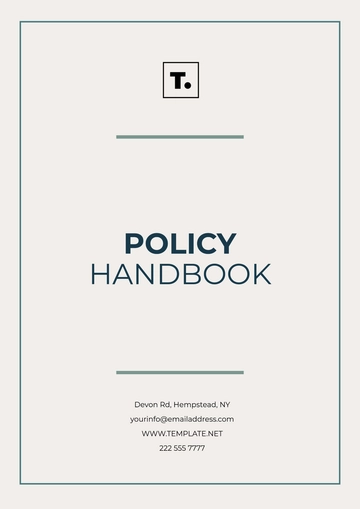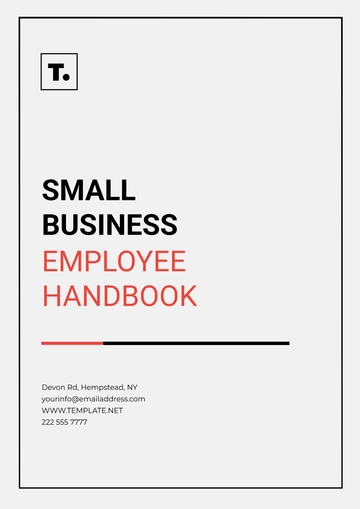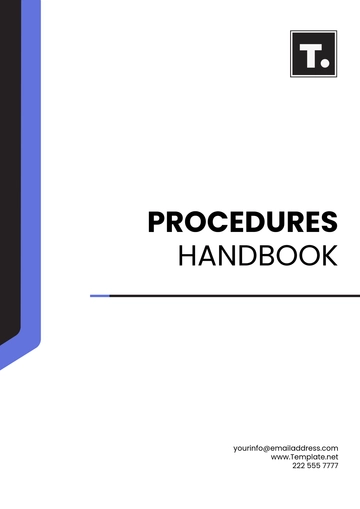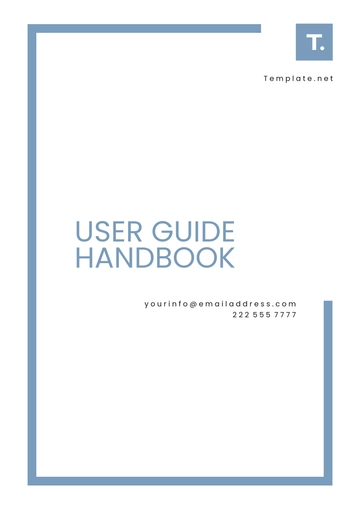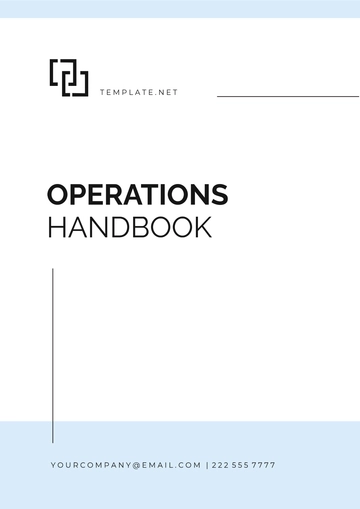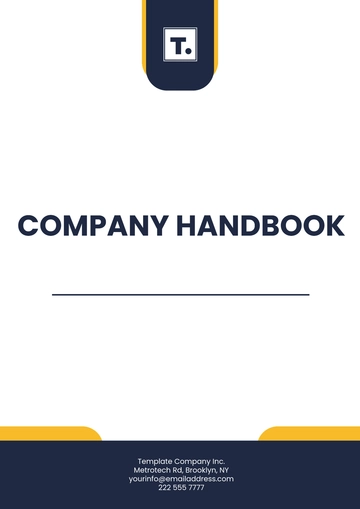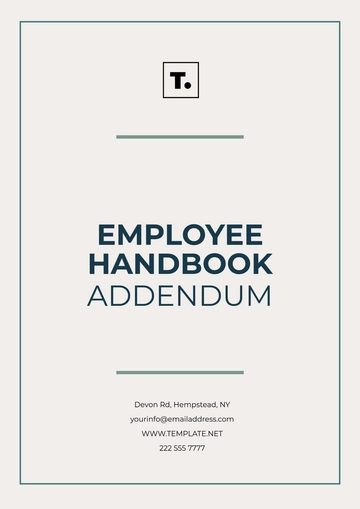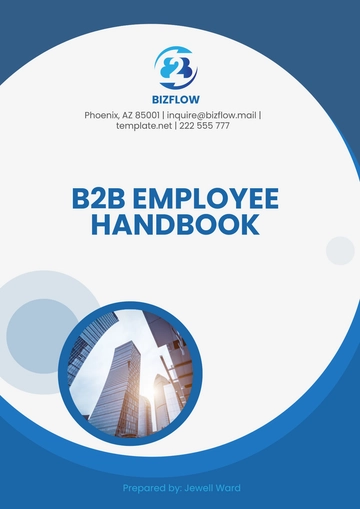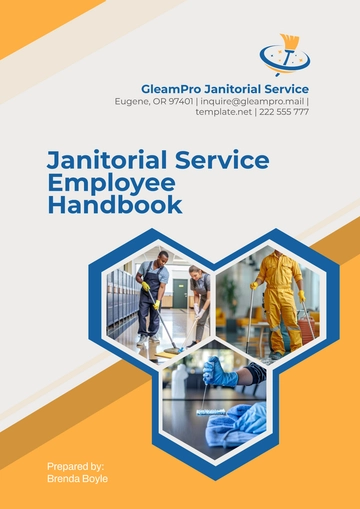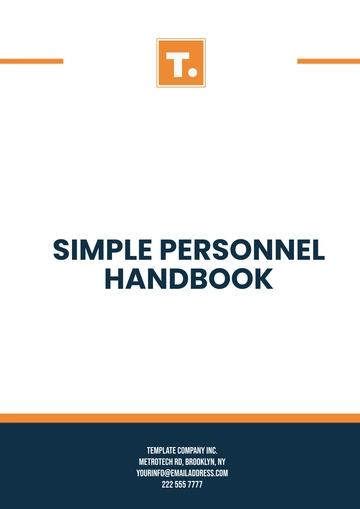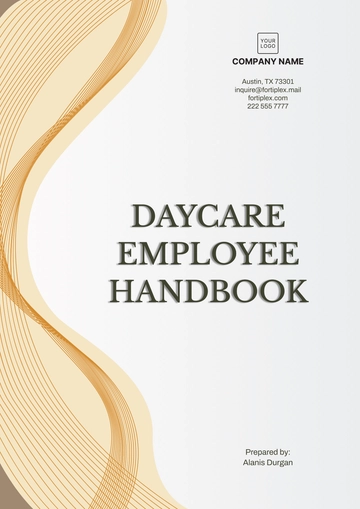Free Sales Handbook on Commission Policies and Procedures
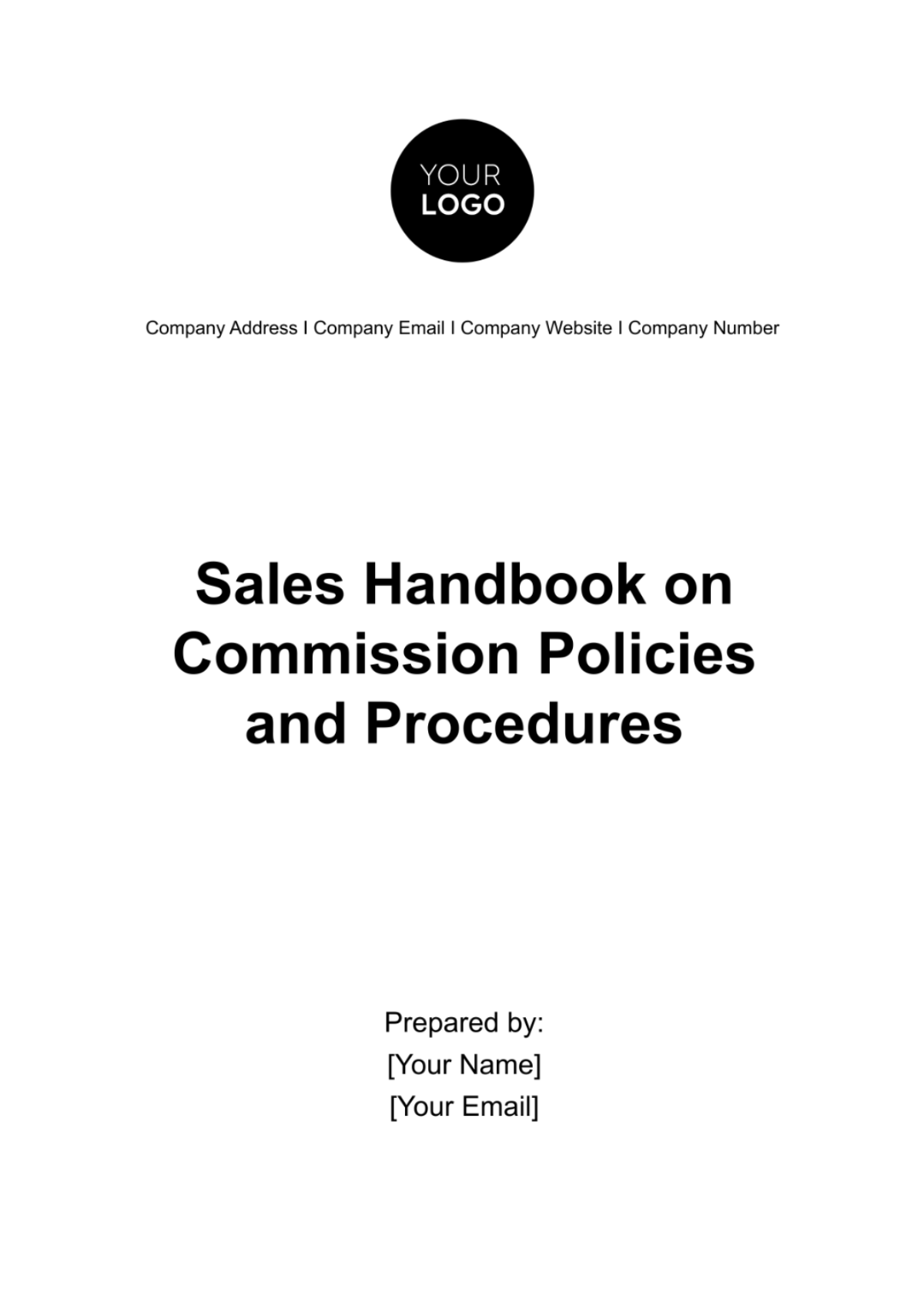
I. Introduction
A. Purpose of the Handbook:
This handbook serves as a reference for our sales team, providing a detailed understanding of the commission policies and procedures that govern their compensation. It ensures transparency and clarity in how commissions are calculated, earned, and distributed.
B. Significance of Commission Policies:
Commissions are a fundamental element of our sales strategy, motivating our team to achieve their best. Clear commission policies and procedures help align individual efforts with the company's objectives, contributing to our overall success.
C. Using the Handbook:
We encourage you to use this handbook as a reference whenever you have questions or need clarification about commissions. It is designed to support your understanding and provide transparency in all commission-related processes.
II. Commission Structure
A. Base Commission Rates:
Our commission structure begins with the base commission rates, which are the foundation of the compensation system. These rates are set at 5% of the total sales revenue.
B. Tiers or Scales:
To encourage top performance, we have implemented a tiered system. As sales professionals achieve specific milestones, their commission rates increase.
Tier | Target | Commission Rate |
|---|---|---|
1 | $50,000 | 7% |
C. Special Commission Rules:
In some cases, specific products or services may have unique commission rules. These rules are communicated on a case-by-case basis.
D. Bonuses and Incentives:
In addition to the base commission, we offer various bonuses and incentives to reward outstanding performance. These may include quarterly performance bonuses, referral bonuses, and special sales contests.
III. Eligibility
A. Eligibility Criteria:
Sales professionals, both employees and independent contractors, are eligible to earn commissions. New team members may enter a probationary period of 90 days, during which they will not be eligible for commissions.
B. Conditions for Eligibility:
To qualify for commissions, sales professionals must meet specific conditions, such as achieving a minimum monthly sales target of $10,000, adhering to company policies, and ensuring customer satisfaction.
IV. Commission Calculation
A. Formula and Metrics:
Our commission calculation formula is straightforward: Commission = (Total Sales Revenue x Commission Rate). It takes into account sales revenue, profit margins, and specific performance metrics for certain products.
B. Examples and Scenarios:
Let's illustrate this with an example. If your total sales revenue for the month is $20,000 and the commission rate is 5%, your commission for that month will be $1,000. Detailed scenarios for different sales situations are available to help you understand how your commissions are calculated below:
Sales Revenue | Commission Rate | Commission Bonus |
|---|---|---|
$50,000 | 10% | $5,000 |
V. Commission Earning Criteria
A. Criteria for Commission Qualification
To qualify for commissions, you must achieve the following criteria:
New Business Sales: 5% commission on the total revenue of new clients you bring in.
Upsells and Cross-sells: 2% commission on revenue from upsell and cross-sell transactions.
Renewals: 3% commission on revenue from client renewals.
Referrals: A referral bonus of $500 for each successful referral leading to a new client.
B. Types of Sales:
These distinctions apply to different types of sales. New business sales refer to acquiring new clients, while upsells and cross-sells involve selling additional products or services to existing clients. Renewals pertain to clients extending their contracts, and referrals reward you for bringing in new business through your network.
VI. Sales Reporting
Reporting Tools and Software: We use our SalesForce platform for reporting sales. Detailed guidance on how to use the system will be provided during your onboarding.
Submission Deadlines: Sales reports are to be submitted by the 5th of the following month. This ensures timely and accurate reporting.
VII. Commission Payment Schedule
Payment Schedule: Commissions are paid out on a monthly basis. This means you will receive your commission earnings on the 15th of each month for the previous month's sales.
Timeline for Payments: The commissions you or your team earned for the month will be paid on the 15th day of the following month, allowing you or your team to anticipate when you'll receive your earnings.
VIII. Deductions and Withholdings
Deductions: Commissions may be subject to deductions, including taxes. Taxes are withheld in accordance with the local tax regulations, and you will receive a tax statement at the end of the fiscal year.
Transparency in Deductions: We maintain complete transparency regarding deductions and will ensure you are informed about any deductions or withholdings made from your commissions.
IX. Dispute Resolution
This process is a structured approach designed to address and resolve any conflicts or discrepancies related to commission payments. In the event of a commission dispute, we have a clear process in place. If you believe there is an issue with your commission payment, please follow these steps:
Initial Step - Supervisor Engagement: The first step in resolving a commission dispute is to bring the matter to the attention of your immediate supervisor or manager. This step involves a detailed discussion of your concerns, providing relevant documentation or evidence regarding the commission payment in question.
Escalation to Human Resources: If the initial discussion with the supervisor does not yield a satisfactory resolution, the next step involves escalating the issue to the Human Resources (HR) department. The HR team will conduct an exhaustive review of the dispute. This review process includes examining commission policies, the specific circumstances of the case, and any pertinent documentation.
Involvement of a Neutral Third-Party Mediator: In scenarios where the dispute remains unresolved even after HR intervention, the process may necessitate the involvement of an external, neutral third-party mediator. This mediator's role is to facilitate discussions between the involved parties, aiming to reach a fair and equitable resolution. The mediator provides an impartial perspective and assists in negotiating a solution acceptable to all parties.
Throughout this process, it is essential to maintain open lines of communication and uphold the principles of fairness and transparency. Each step is designed to provide escalating levels of review and intervention, ensuring that every commission dispute is given the attention and thorough consideration it deserves.
X. Clawbacks and Reserves
In specific situations, commissions may be subject to clawbacks. Common reasons for clawbacks include customer refunds or cancellations within the trial period. When a clawback is initiated, a portion or the entire commission related to the refunded sale is deducted.
Reserves may be placed on commissions in cases where commissions are uncertain, such as when payment from a client is pending. Once the payment is received and verified, the reserve will be released to you.
XI. Compliance and Legal Requirements
A. Adherence to Legal Requirements:
Our commission policies are designed to adhere to all relevant legal and industry regulations. This ensures that both the organization and sales professionals are in compliance with labor laws and employment regulations.
B. Regular Compliance Audits:
We conduct regular audits of our commission policies to ensure they remain compliant with changing legal requirements. Any updates or changes will be communicated promptly.
XII. Communication and Transparency
A. Access to Information:
We encourage open communication between sales professionals and management regarding commission-related questions and concerns. Our HR department and your immediate supervisor are available to provide information and assistance.
B. Regular Updates:
We are committed to providing regular updates and notifications regarding commission-related matters. You will receive regular statements detailing your commission earnings, deductions, and any changes to commission policies.
C. Clear Communication:
Open lines of communication are essential to our mutual success. We encourage you to reach out to your immediate supervisor or our HR department with any questions or concerns related to your commissions. Additionally, we are committed to keeping you informed of any policy updates or changes.
XIII. Updates and Revisions
A. Policy Updates:
Any changes or updates to commission policies and procedures will be communicated to all sales professionals. It is essential to stay informed about policy revisions, as these may affect your commission structure.
B. Notification Process:
You will be notified of any changes via email and through announcements in our communication channels. In some cases, a detailed explanation of the changes and their effective date will be provided.
C. Transitional Period:
When policy changes occur, we may implement transitional periods to ensure a smooth adjustment. During this time, both the previous and new policies will be clearly outlined, providing you with ample time to adapt.
XIV. Conclusion
This handbook has been designed as a roadmap to navigate the intricacies of our commission policies and procedures. It serves as your guiding light, ensuring you have the knowledge and tools needed to embark on a successful journey within our organization. Our commission structure is carefully detailed, offering complete visibility into how your earnings are determined. By understanding the mechanics behind your commissions, you are better equipped to strategize and maximize your income.
We want to express our sincere gratitude for your dedication and contributions to our organization. Your role in our success is immeasurable, and we look forward to a future filled with even greater accomplishments. Your success is not just a matter of importance; it is our driving force.
- 100% Customizable, free editor
- Access 1 Million+ Templates, photo’s & graphics
- Download or share as a template
- Click and replace photos, graphics, text, backgrounds
- Resize, crop, AI write & more
- Access advanced editor
Streamline the understanding of commission policies with this customizable Sales Handbook on Commission Policies and Procedures Template from Template.net. Editable in our AI Editor Tool, this detailed guide offers structured content to promote clarity and compliance in commission-related matters, reinforcing transparency and trust within your sales team.
